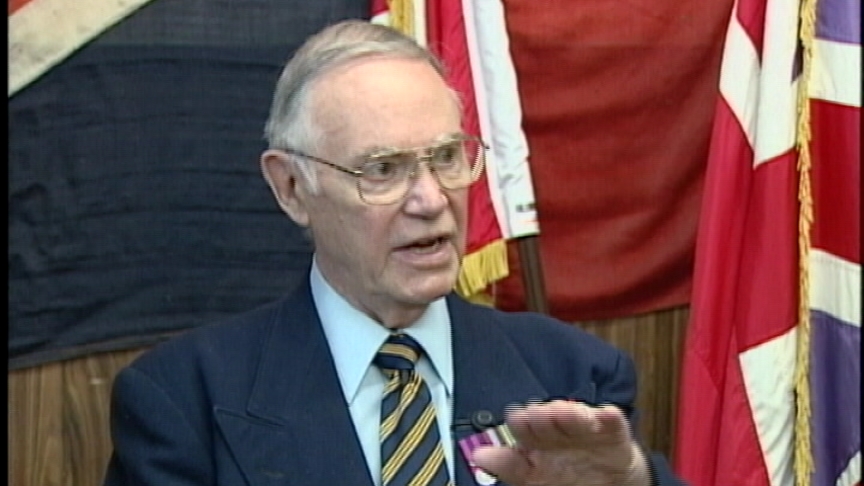Charges of Espionage - Court Martial Pending
Heroes Remember
Charges of Espionage - Court Martial Pending
Interviewer: During the Court Marshall itself, do you recall
being asked questions by the Japanese officers?
No, we were not talked, we were not, we certainly were not
spoken to by the Japanese officers.
Interviewer: Were statements read about your conduct?
Statements were read in Japanese and they were not interpreted
until it came to the point where they said we were being charged
with an offence of espionage.
Interviewer: After you were told that you were to be tried or
charged with espionage, what happened then?
Well, certainly Colonel Newnham, who was incidentally a very
sick man at the time, and Captain Douglas Ford stood up and over
their, over the court's objections, they insisted that Hardy and
I, or the others involved, were ordered by them, given orders by
them, to do what we were doing and that we were not personally
responsible for, for the acts that we were accused of.
Interviewer: What effect did that, did those statements have on
the Japanese officers?
Well, at that particular time, it had a, certainly looked, it
appeared to look like they had a, a very adverse affect.
Interviewer: Was a sentence passed down ultimately on you men?
A sentence was passed down ultimately wherein Captain Ford and
Colonel Newnham and...
Interviewer: Flight Lieutenant Gray?
Flight Lieutenant Gray, thank you, were all sentenced to death
and the rest of us were sentenced to fifteen years hard labour.
Imprisonment.
Interviewer: Where did you go after you had been convicted?
Back to Stanley Prison.
Interviewer: Mr. Routledge, you mentioned to me that at your
Court Marshall, that there were, that Colonel Newnham, Captain
Ford, and Flight Lieutenant Gray had been sentenced to death.
Yeah.
Interviewer: What happened to them?
They were shot and it's, that's one thing I do recall. It was
the 18th of December that they were, they were executed.
Related Videos
- Date modified:




